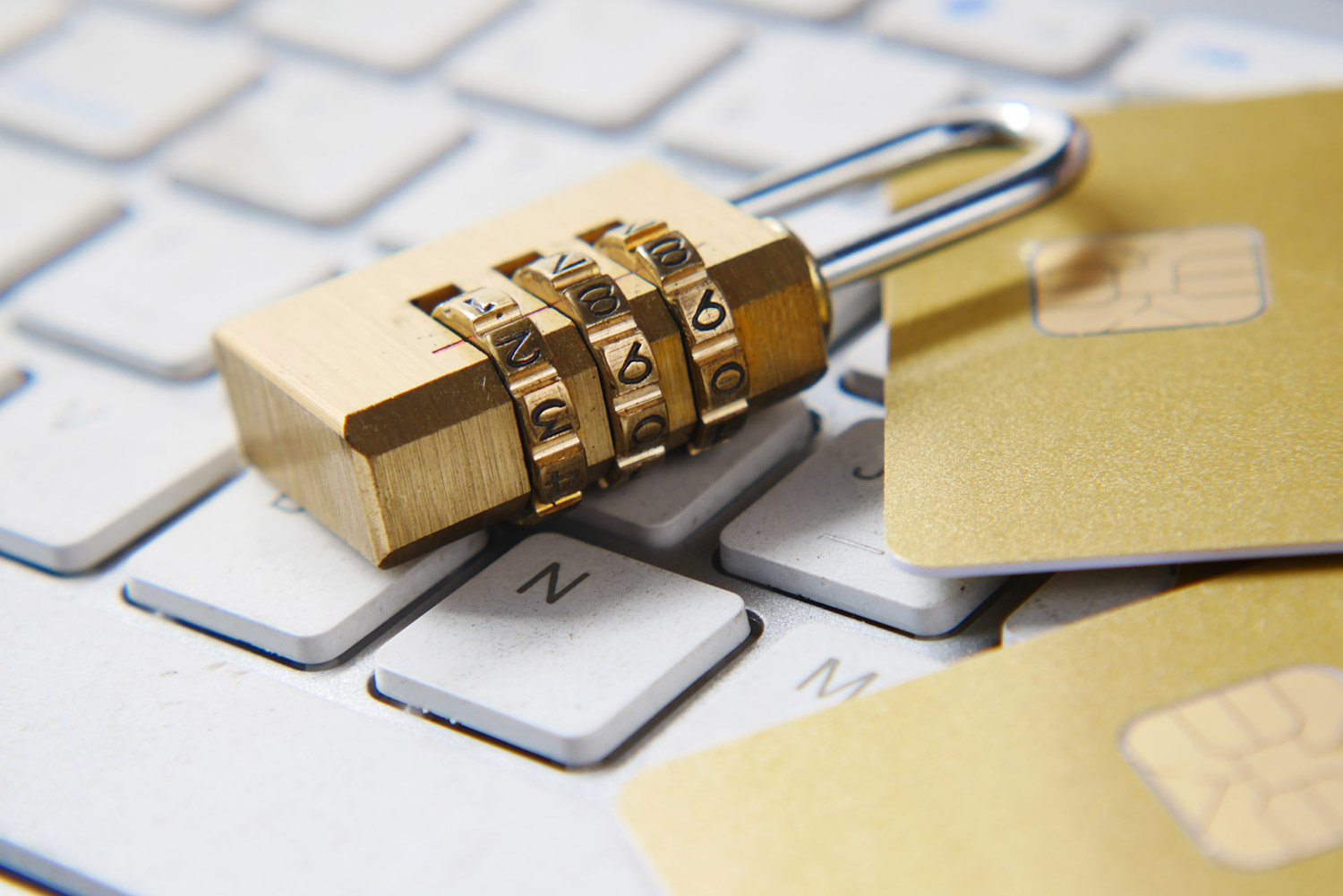
dmarcian:
Making Email Safer
Based in the US, dmarcian strives to improve email by helping organizations and individuals around the world leverage technology to protect their domains from unauthorized use. As part of its mission of thwarting cyber crime and making email communication safer, dmarcian offers free training aimed at empowering users. In 2017, recognizing that it shared many values and goals with the Internet Society, dmarcian became an organization member.
A Conversation with Tim

Joining a Zoom call from the lush green mountains of North Carolina, Tim spoke about his company, how it got its start, and what it’s doing to make the Internet a safer place for all.
Founded in 2012 in North Carolina, dmarcian is a team of dedicated professionals based across the continental US and in six other countries. All of their efforts center around one core mission: upgrading the entire world’s email by making an email authentication protocol called Domain-based Message Authentication, Reporting, and Conformance (DMARC) accessible to all. DMARC gives email domain owners the ability to protect their domains from being used in business email compromise attacks, phishing emails, email scams, and other cyber threat activities. In doing this, DMARC helps improve email for everyone—senders and receivers alike. The customers dmarcian serves include banks, top Internet properties, governments, marketing agencies, telecoms, and commercial enterprises of all sizes around the world.
Harnessing Tech to Empower Users
The DMARC protocol was developed to solve a problem that had already plagued email for decades. It was in the mid-2000s, after working for various Silicon Valley startups in different tech subfields, that dmarcian founder Tim Draegen took a special interest in email and how it could be made safer. “Spam had already ramped up by the turn of the millennium,” Tim says, “but filters could only do so much. The normal person who got a piece of email would still have to struggle to find out if it was real or some kind of fraud.”
Tim Draegen, Founder
Hailing from San Jose, California, the man behind dmarcian was born in the perfect place, and at the perfect time, to develop a passion for information technology. When Tim was eight years old, in the early 1980s, his father traded a beloved family pinball machine for an Apple 2E with dual floppy drives—cutting-edge technology that dazzled the boy. “My brother and sister were teenagers and had better things to do,” he says, “so I got to spend as much time on the computer as I wanted.” Young Tim was soon playing computer games and chatting with people around the world via bulletin board systems. “It allowed me to see that the world was a much bigger place than I’d thought and to realize the Internet’s enormous potential as a force for good.” Tim went on to study computer science and devote his career to harnessing technology to make the world a better place.
And the stakes are high. When a cyber criminal impersonates a person or company by spoofing a domain name, they often manage to carry out illicit actions such as installing ransomware, stealing confidential information, or gaining access to a private network. Such attacks are common and can be very costly for the victims.
Tim chose to work on email as a way of making the biggest impact in terms of foiling cyber crime. “Email is by far the largest installed application on the Internet. It’s used for everything.”
Soon, Tim began working with other engineers on a multi-year project that culminated in the development of DMARC. “It was made public in 2012, and the second that happened, I quit my day job and started founding dmarcian. As a primary author of DMARC, I didn’t want to see it get stuck as a niche technology for big companies. I wanted to see it folded into the Internet and made available to everyone, big players and small.” Thus dmarcian was born.
If people didn’t have to spend so much time in their inbox dealing with junk mail, they could focus on things that are more meaningful to themselves and their community.”
DMARC brings new features to email, enabling users to check whether a piece of email truly comes from the domain displayed in the address. Domain owners can also review feedback reports to see how their domains are being used on the Internet. With these reports, they can identify all their sources of email, which in turn allows them to quickly and easily deploy DMARC’s underlying technologies across all legitimate email streams.
The protocol furthermore encourages a more positive and even optimistic approach to email safety. “Arguably the best thing that DMARC is doing for email,” Tim says, “is to change email from a ‘let’s keep the bad stuff out’ model to a ‘let’s build on our ability to identify real email’ focus.”
Looking toward the future, Tim imagines a world where DMARC creates enough stability in email that the whole medium changes for the better. “If people didn’t have to spend so much time in their inbox dealing with junk mail,” he says, “they could focus on things that are more meaningful to themselves and their community.”
Access to Knowledge for All
Once DMARC was operational, Tim turned his efforts to advocating for it. Via dmarcian, he began working to introduce it to as many people as possible and to facilitate its use. From the start, he knew this would involve educating the public—first, so they would know it existed, and second, so they could learn to implement it effectively.
The dmarcian team added a resource section to the website and quickly filled it with blog articles, a DMARC dictionary, a forum, and a video series. For optimal impact, all the content is presented in layperson’s terms. Tim explains that this human-friendliness is very important to dmarcian. “We try really hard to make our stuff accessible to people and not just technicians and Internet folks.”
In May 2022, dmarcian unveiled a more comprehensive educational offering, DMARC Academy. Participants can learn how to deploy DMARC and its underlying technologies across an organization to protect domains from phishing attempts and other abuse. At the end, they receive a certificate that they can use to demonstrate their knowledge to prospective employers and business partners.
DMARC Academy stands apart from its competition in that it’s completely free of charge. Tim and his team feel strongly that information this important shouldn’t be kept under lock and key. “If you want to see wide-scale adoption of a protocol like DMARC, you can’t charge people to learn about it. You have to give that knowledge away to the Internet because the Internet’s far larger than any single business. And that’s our whole mission—spreading the technology.”
If you want to see wide-scale adoption of a protocol like DMARC, you can’t charge people to learn about it. You have to give that knowledge away to the Internet because the Internet’s far larger than any single business. And that’s our whole mission—spreading the technology.”
DMARC Academy will soon be released in languages other than English too. By offering such accessible training in this groundbreaking technology, dmarcian is enabling people anywhere in the world, from any socioeconomic background, to learn about DMARC and leverage this knowledge to protect their business or boost a career.
The Importance of an Open Global Internet
For Tim and his team, it’s clear that an open global Internet is a non-negotiable prerequisite for further human progress. Like many other Internet players, dmarcian wants to see the Internet continue as the borderless worldwide resource it was designed to be, free from governmental or corporate fragmentation and the detrimental effects such isolation brings.
“The private companies and really large governments that make their own walled gardens kind of take some of the promise of the Internet away,” Tim says. “The promise being that everybody would be able to connect to each other—with the Internet as an intermediary—to develop ideas and hopefully learn from each other to do better as a collection of humans.”
Another key benefit of an open Internet is the ability to work with the right talent, no matter where they’re located. This is invaluable in the tech industry, where experts tend to be scattered around the globe. With its staff and customers based on multiple continents, as Tim explains, dmarcian couldn’t do business at all if there were no open global Internet.
“We have a distributed office setup, meaning that all our employees work remotely,” he says, “although local staff sometimes come to our small North Carolina office for a change of scenery.”
On the other side of the coin, the ability to work remotely, made possible by the open global Internet, allows employees and entrepreneurs to choose where they live according to their own preferences. Tim, for example, wanted to take a distance from Silicon Valley. “I got tired of the neverending tech ambiance, driving past billboards trying to sell you the most secure cloud.” He opted to instead surround himself with real clouds in the alpine landscape of southern Appalachia, where he founded dmarcian.
dmarcian and the Internet Society
Tim first heard about the Internet Society through his involvement with the Internet Engineering Task Force. “It’s always so good to see there are real humans keeping an eye on the Internet, advocating for the right policies to make sure it remains the global resource it was intended to be.”
For dmarcian, becoming an Internet Society organization member was the logical next step in its advocacy for a better, safer Internet. “For me, because my whole world revolves around the Internet, it’s a no-brainer for me to say I need to do some sort of civic duty and give back,” Tim says.
We joined because it’s a good way to contribute to the Internet’s well-being and growth and demonstrate our support for the Internet Society’s mission. We care about email, but the bigger picture matters too.”
Tim unhesitatingly recommends Internet Society membership to anyone working with the Internet. Active involvement in organizations like the Internet Society is a key part of his vision for a better future. “I would love to see people become more civic-minded and community-oriented, whether that community is a local one or the planet as a whole.”
By working together, we can champion a stronger and better Internet and help ensure it’s available to all for the benefit of human progress.
Together with our global community, members of the Internet Society have the unique chance to grow, strengthen, and shape the Internet of the future. Join us.
Image credit:
© Towfiqu Barbhuiya on Unsplash, © Pexels